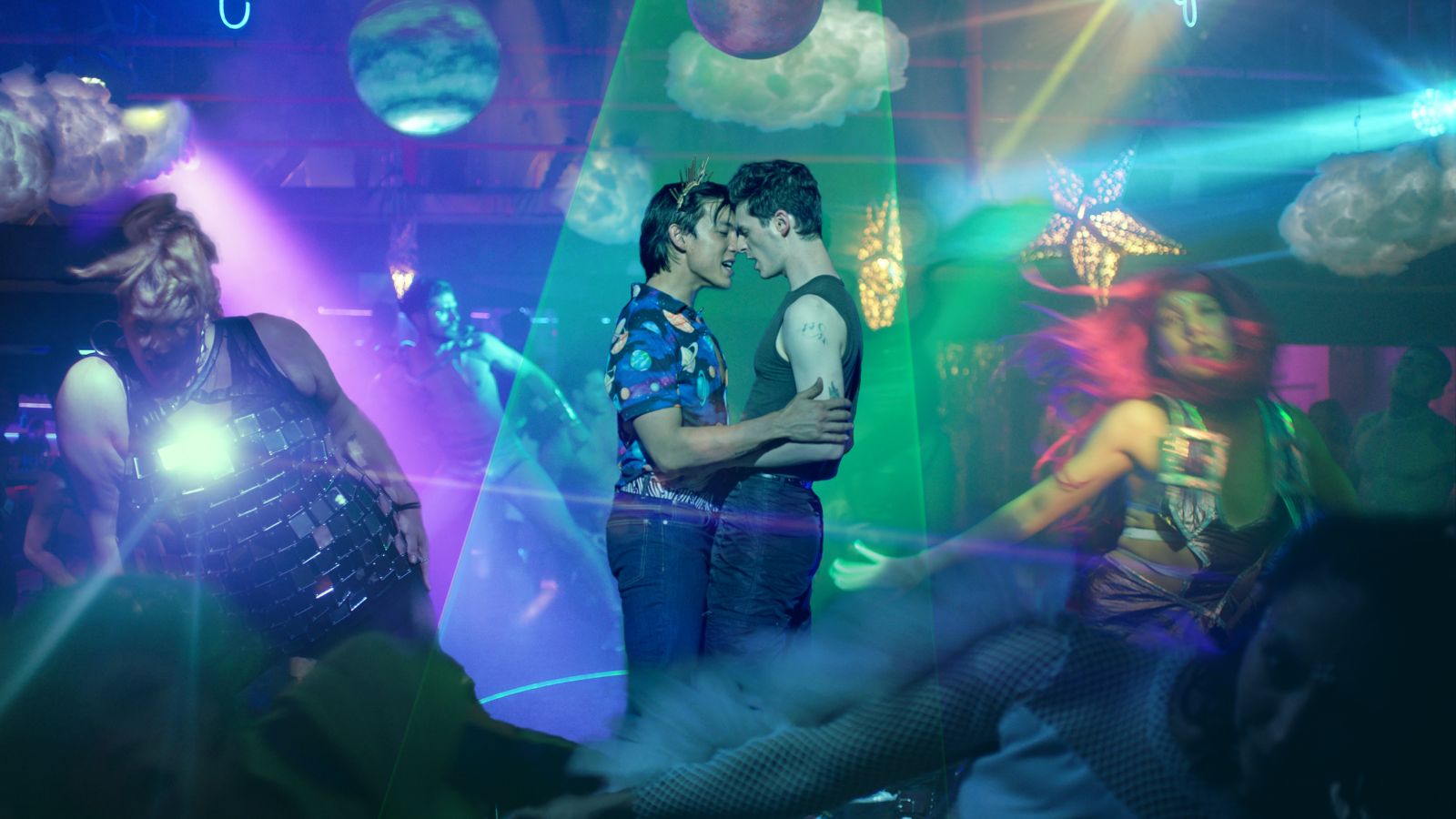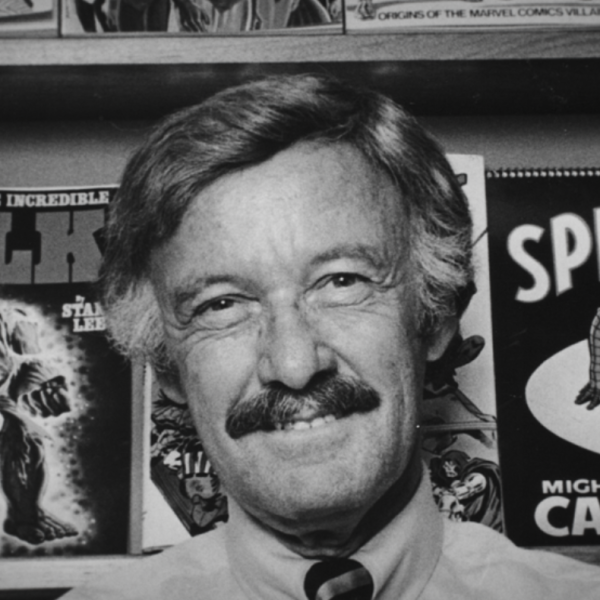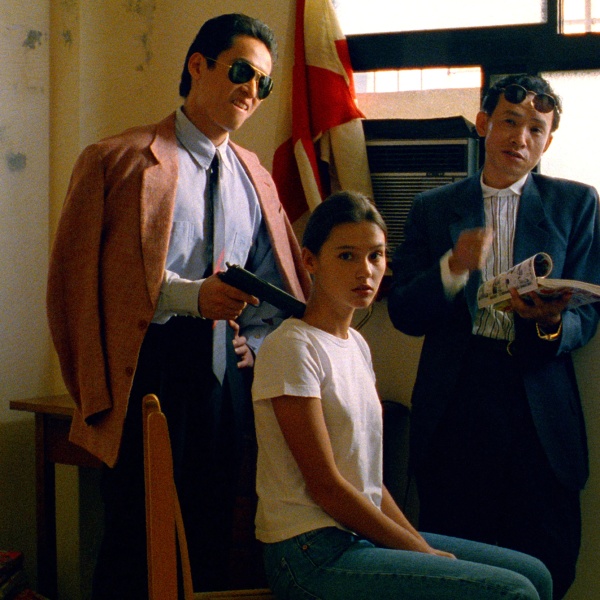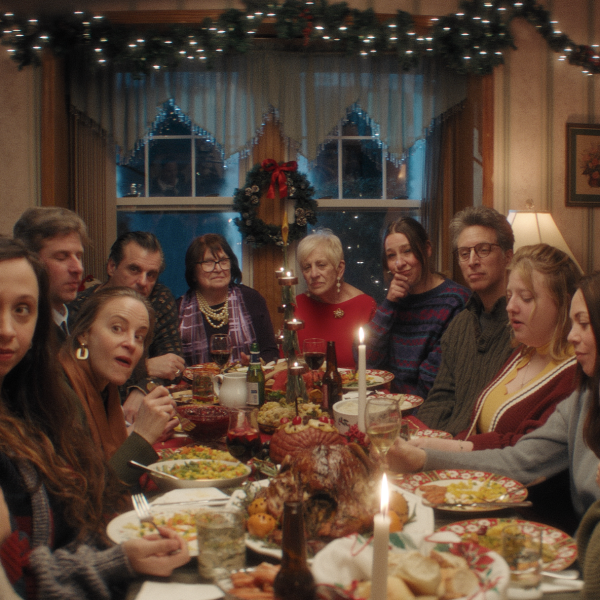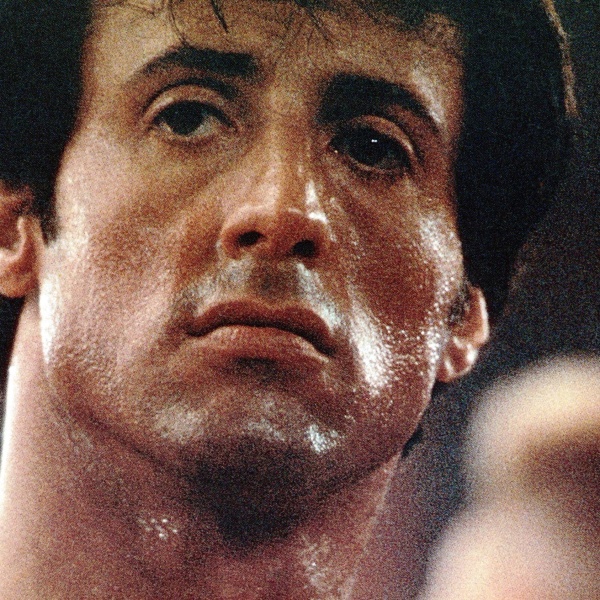It’s been almost exactly 35 years since the Indigo Girls first broke out with their eponymous second album, yet the Power of Two continues to thrive still, especially on the screen. “Barbie” recently pointed us “in a crooked line” with Margot Robbie’s rendition of “Closer to Fine” (ably supported by Ryan Gosling, of course), while last year’s Sundance doc, titled “It’s Only Life After All“, brought us up close and personal with the duo themselves.
Following those movie tributes now comes another, in the form of “Glitter & Doom,” a jukebox musical that celebrates the enduring legacy that Amy Ray and Emily Saliers have crafted through their raw, passionate, and deeply personal brand of queer folk rock. But does the movie live up to their legendary talents or is it doomed to go the way of a film like “Yesterday“?
Glitter (Alex Diaz) is an improbably named Ivy League graduate who dreams of cartwheeling his way into a Parisian clown college, squeaky rubber nose and all, but his mother (Ming-Na Wen), a rich studio executive, doesn’t approve. Then there’s “Doom” (Alan Cammish), a somewhat moody — although less moody than you’d expect — singer/songwriter who struggles to perform his music at the local gay bar, La Fountaine, because the manager (Lea DeLaria) wants him to play “something lighter.”
When Glitter and Doom meet by chance, a strange fire ignites between the pair, and suddenly, a whole world of possibility opens up. But with these opportunities also come challenges that put their newly-forged connection to the test. Cue some wholesome dates, cutesy camping trips, and a whole lot of singing and dancing as they renegotiate what a future might look like together with their dreams still intact.
You don’t need to get out the map to see what lies in store for them, but that doesn’t necessarily matter a whole lot. Instead, the focus here is on emotion and how the film makes you feel as it strives to capture that earnest sincerity which lies at the heart of everything the Indigo Girls do. It shouldn’t come as a surprise that screenwriter Cory Krueckeberg wrote the film for director Tom Gustafso to celebrate their 20th anniversary, because it’s just as adorable and cheesy as that story sounds.
That’s not to excuse the scripting’s weaker moments, however, which would have benefited from a shorter running time and better pacing. As is often the case with jukebox musicals of this nature, it’s clear that the story was written around the songs — all 25 of them, arranged by “The Voice” runner-up Michelle Chamuel — rather than the other way round. Classics like “Galileo,” “Center Stage,” and “Power of Two,” are included, of course, and the film predictably ends with the band’s biggest hit, “Closer to Fine,” plus a new Indigo Girls song, titled “What We Wanna Be,” which was written specifically for the end credits.
Each cover soars, which is a testament to the original songwriting, but an inventive mashup of “Prince of Darkness,” “Touch Me Fall,” and “Shed Your Skin” deserves a specific shout-out thanks to its bold take on beloved songs that some might deem untouchable.
If you’re a longtime fan, it’s a joy to hear these tracks remixed and reimagined across such a wide variety of genres and settings, but if you’re new to this discography, you might be a tad less forgiving when it comes to some of the creakier dialogue and a few forced moments that pull you out of the story a bit. Yes, “Glitter and Doom” literally “get out the map” when they go camping, and your tolerance for that on-the-nose scripting will vary according to your love of the Indigo Girls and campy musicals in general. Still, there are enough crowd-pleasing songs here to pull in newbies, and they’re strong enough to keep you invested even when the tropes start flying in thick and fast.

It also helps that Canadian-Filipino star Alex Diaz and British newcomer Alan Cammish share undeniable chemistry as they transcend the “opposites attract” dynamic to imbue their characters with some much-needed nuance. Glitter shines bright with his endless optimism, and Doom is a bit dreary at times, but when they perform together especially, Diaz and Cammish do the Indigo Girls proud.
A number of queer stars and beloved queer icons round out the rest of the cast, including Ming-Na Wen, whose inexplicable eyepatch sits just on the right side of camp. That also goes for Tig Notaro’s pithy one-liners and Missi Pyle’s larger-than-life turn as Doom’s absent mother who’s recovering from addiction. The Indigo Girls themselves make an appearance too, as they rightly should, but this is still an indie production through and through, despite the inclusion of these bigger names.
That means “Glitter & Doom” isn’t quite as polished as other jukebox musicals like “Mamma Mia!,” or even “Across the Universe” for that matter, but this scrappy, DIY approach is very much in keeping with the duo who inspired this film in the first place. That’s not to say the Indigo Girls aren’t accomplished at what they do. It’s more that they’ve never been fully accepted by the mainstream, despite their phenomenal success over the past three and a half decades, so it follows that the film they’ve inspired would also sit on the periphery in that way too.
For an entire generation who grew up in the ’80s and ’90s, listening to Amy and Emily was a queer rite of passage, and while this musical alone isn’t quite strong enough to be that same cornerstone now for kids today, it certainly helps cement the timeless appeal of their music alongside recent odes to their talent like “Barbie” and “It’s Only Life After All.”
Grade: B-
Music Box Films will release “Glitter & Doom” in theaters on Friday, March 8.
